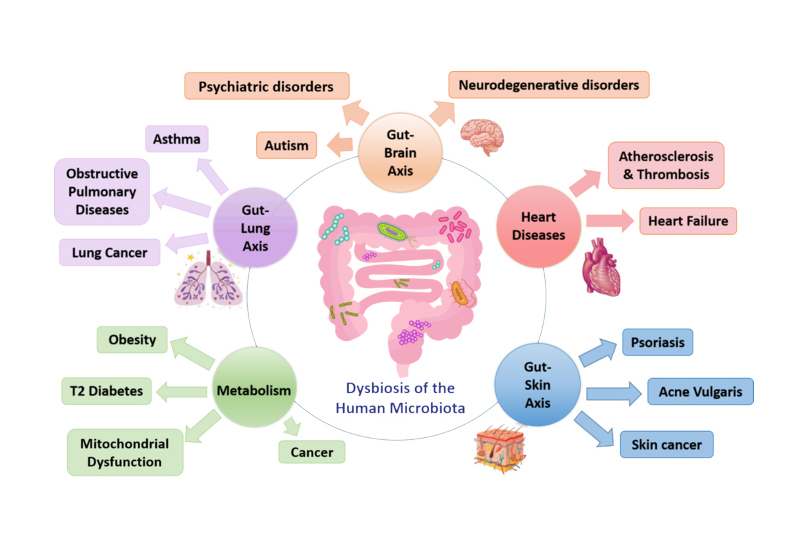The physiological functions of the GM are not limited to the gut, but bidirectional interactions between the gut microbiota and various extraintestinal organs have been identified. These interactions have been termed interorganic axes by several authors, among which the gut–brain, gut–skin, gut–lung, gut–heart, and gut–metabolism axes stand out.
It has been shown that an organism is healthy or in homeostasis when the GM is in balance. However, altered GM or dysbiosis represents acritical factor in the pathogenesis of many local and systemic diseases. Therefore, probiotics intervene in this context, which, according to various published studies, allows balance to be maintained in the GM, leading to an individual’s good health.

